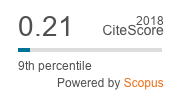Rastreando possíveis elos científicos entre Claude Bernard e B. F. Skinner
DOI :
https://doi.org/10.1590/0102.3772e38212.pt%20Mots-clés :
Claude Bernard, B. F. Skinner, delineamento do sujeito únicoRésumé
Vários estudos rastreando possíveis fontes que teriam norteado Skinner na construção do Behaviorismo sugeriram, de modo pouco preciso, elos científicos entre Claude Bernard e Skinner. Considerando o assunto, este trabalho realizou um comparativo sistemático entre ambos os autores, através das seguintes categorias: (1) interação organismo-ambiente; (2) mentalismo; (3) indução-dedução; e (4) delineamento do sujeito único. Embora diferenças tenham sido encontradas entre as categorias (1), a análise de variáveis externas, e na (2), rejeição de explicações sem bases científicas, essas diferenças estão presentes em ambas as teorias. Na categoria (3), Skinner e Bernard apresentaram posicionamento distintos. Quanto à análise do delineamento intrassujeito, ambos denotaram várias compatibilidades, diferenciando-se, principalmente, por conta de seus objetivos epistêmicos.
Téléchargements
Références
Andersen, O. S. (2005). A brief history of The Journal of General Physiology.The Journal of General Physiology,125(1), 3-12. doi.org/10.1085/jgp.200409234
Bergson, H. (1950). La pensée et le mouvant. essais et conférences Les Presses Universitaires de France.
Bernard, C. (1865). Introduction à l'étude de la médecine expérimentale Éditions Garnier-Flammarion.
Bernard, C. (1878). Leçons sur les phénomènes de la vie communes auxs animauxs et auxs végétauxs Librarie J. Baillière et fils.
Blackman, D. E. (1991). B. F. Skinner and G. H. Mead: On biological science and social science.Journal of the Experimental Analysis of Behavior,55(2), 251-265. doi.org/10.1901/jeab.1991.55-251
Carrara, K. (2005). Behaviorismo radical: Crítica e metacrítica (2ª ed.). Editora Unesp.
Carvalho-Neto, M. B., Tourinho, E. Z., Zilio, D., & Strapasson, B. A. (2012). B. F. Skinner e o mentalismo: uma análise histórico-conceitual (1931-1959). Memorandum, 22, 13-39. https://shorturl.at/bcnxX
Catania, A., & Laties, V. (1999). Pavlov and Skinner: Two lives in science (An introduction to B. F. Skinner’s “Some responses to the stimulus ‘Pavlov’”).Journal of the Experimental Analysis of Behavior,72(3), 455-461. doi.org/10.1901/jeab.1999.72-455
Cruz, R. N. (2011). Percalços na história da ciência: B. F. Skinner e a aceitação inicial da análise experimental do comportamento entre as décadas de 1930 e 1940. Psicologia: Teoria e Pesquisa,27(4), 545-554. dx.doi.org/10.1590/S0102-37722011000400020
Cruz, R. N. (2014). Desconhecimento e liberdade no caminho de uma nova ciência do comportamento. Scientiæ Studia, 12(3), 465-90. dx.doi.org/10.1590/S1678-31662014000300004
Dutra, L. H. A. (2003). Claude Bernard e a psicologia experimental.Manuscrito: revista internacional de filosofia, 26(1), 71-111. https://bit.ly/3H43eLm
Gusso, H. L. (2008). Processos comportamentais identificados nas definições de cultura na antropologia: relações entre conceitos básicos de análise do comportamento e fenômenos sociais [Dissertação de Mestrado, Universidade Federal de Santa Catarina]. http://repositorio.ufsc.br/xmlui/handle/123456789/92005
Hackenberg, T. D. (1995). Jacques Loeb, B. F. Skinner, and the legacy of prediction and control. The Behavior of Organisms Analyst, 18(2), 225-236. https://www.ncbi.nlm.nih.gov/pmc/articles/PMC2733711/
Hineline, P. N. (1990). The origins of environment-based psychological theory. Journal of the Experimental Analysis of Behavior, 53(2), 305-320. doi.org/10.1901/jeab.1990.53-305
Huitema, B. E. (2011). Analysis of single-case reversal designs, in the analysis of covariance and alternatives: Statistical methods for experiments, quasi experiments, and single-case studies (2ª ed.). John Wiley & Sons, Inc.
Hwang, S. (2012). Xavier Bichat’s medical thought in the historical context of french vitalism. Ui sahak, 21(1), 141-170. https://pubmed.ncbi.nlm.nih.gov/22739629/
Lattal, K. (2005). Ciência, tecnologia e análise do comportamento. In J. Abreu-Rodrigues & M. R. Ribeiro (Eds.). Análise do comportamento: Pesquisa, teoria e aplicação (pp.15-27). Artmed.
Lattal, K. A., & Laipple, J. S. (2003). Pragmatism and behavior analysis. In K. A. Lattal & P. N. Chase. Behavior theory and philosophy (pp. 41-61). Kluwer Academic/Plenum.
Loeb, J. (1916). The organism as a whole: From a physicochemical viewpoint G. P. Putnam’s Sons.
Lovaas, O. I. (1993). The development of a treatment-research project for developmentally disabled and autistic children. Journal of Applied Behavior Analysis, 26(4), 617-630. doi.org/10.1901/jaba.1993.26-617
Matos, M. A. (1990). Controle experimental e controle estatístico: A filosofia do caso único na pesquisa comportamental. Ciência e Cultura, 42, 585-592. https://bit.ly/3LJ6Vtw
McKerchar, T. L., Morris, E. K., & Smith, N. G. (2011). A quantitative analysis and natural history of B. F. Skinner's coauthoring practices. The Behavior of Organisms Analyst, 34(1), 75-91. https://www.ncbi.nlm.nih.gov/pmc/articles/PMC3089415/
Moreira, M. B., & Medeiros, C. A. de. (2007). Princípios básicos de análise do comportamento Artmed.
Morris, E. K. (1988). Contextualism: The world view of behavior analysis. Journal of Experimental Child Psychology, 46(3), 289-323. doi.org/10.1016/0022-0965(88)90063-X
Morris, E. K., & Braukmann, C. J. (Eds.). (1987). Behavioral approaches to crime and delinquency: A handbook of application, research, and concepts Plenum Press.
Morris, E. K., Smith, N. G., & Altus, D. E. (2005). B. F. Skinner’s contributions to applied behavior analysis. The Behavior of Organisms Analyst, 28(2), 99-131. https://www.ncbi.nlm.nih.gov/pmc/articles/PMC2755377/
Morris, E. K., Todd, J. T., Midgley, B. D., Schneider, S. M., & Johnson, L. M. (1990). The history of behavior Analysis: Some historiography and a bibliography. The Behavior of Organisms Analyst, 13(2), 131-158. https://www.ncbi.nlm.nih.gov/pmc/articles/PMC2733434/
Padula, A. E. M. (2011). Claude Bernard: fisiologia e filosofia Dissertação de Mestrado, Pontifícia Universidade Católica de São Paulo. https://tede2.pucsp.br/handle/handle/13251
Popper, K. S. (1975). A lógica da pesquisa científica (2ª Ed.) Cultrix.
Ruiz, O. G. (2011). El problema de la psique animal en los estudios de Pavlov acerca de la digestión [Comunicação]. XXIV Symposium de la Sociedad Española de Historia de la Psicología, Málaga, España.
Schroeder, S. R. (2012). Ecobehavioral analysis and developmental disabilities: The twenty-first century Springer Verlag.
Skinner, B. F. (1938). The behavior of organisms Appleton-Century.
Skinner, B. F. (1989). Recent issues in the analysis of behavior Merril Publishing Company.
Skinner, B.F. (1979). The shaping of behaviorist: Part two of an autobiography Alfred A. Knopf.
Thompson, T. (1984). The examining magistrate for nature: A retrospective review of Claude Bernard's an introduction to the study of experimental medicine. Journal of the Experimental Analysis of Behavior, 41(2), 211-216. doi.org/10.1901/jeab.1984.41-211
Todes, D. P. (2014). Ivan Pavlov A russian life in science Oxford University Press.
Virtanen, R. (1960). Claude Bernard and his place in the history of ideas University of Nebraska Press.
Wickens, A. P. (2014). A history of the brain: From stone age surgery to modern neuroscience Psychology Press
Téléchargements
Publié-e
Comment citer
Numéro
Rubrique
Licence
(c) Tous droits réservés Suzana Ferreira Barbosa 2022

Cette œuvre est sous licence Creative Commons Attribution 4.0 International.



